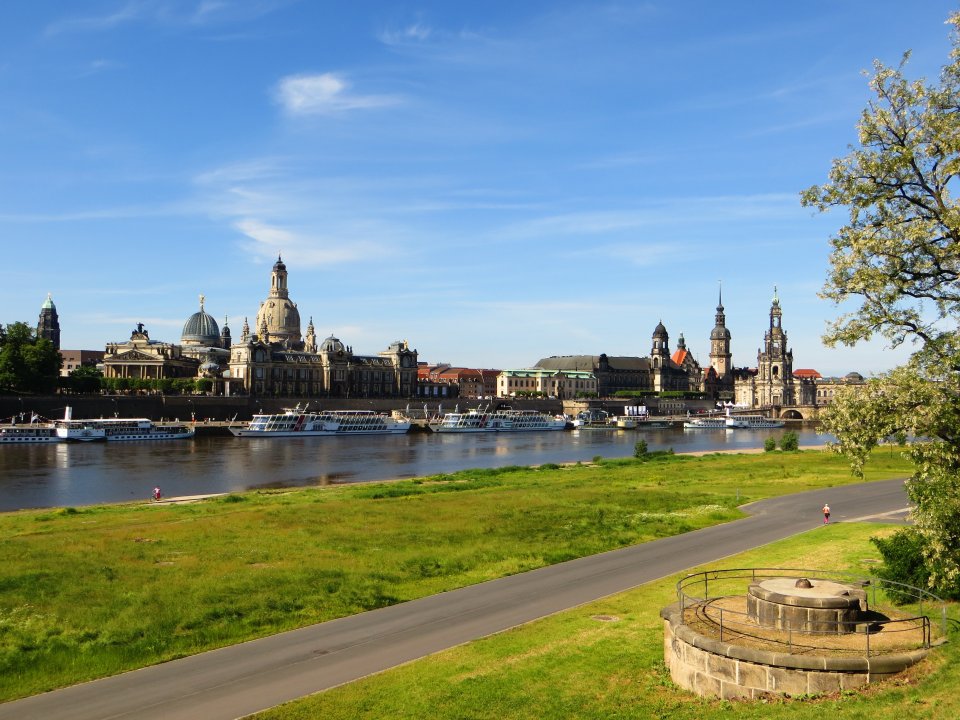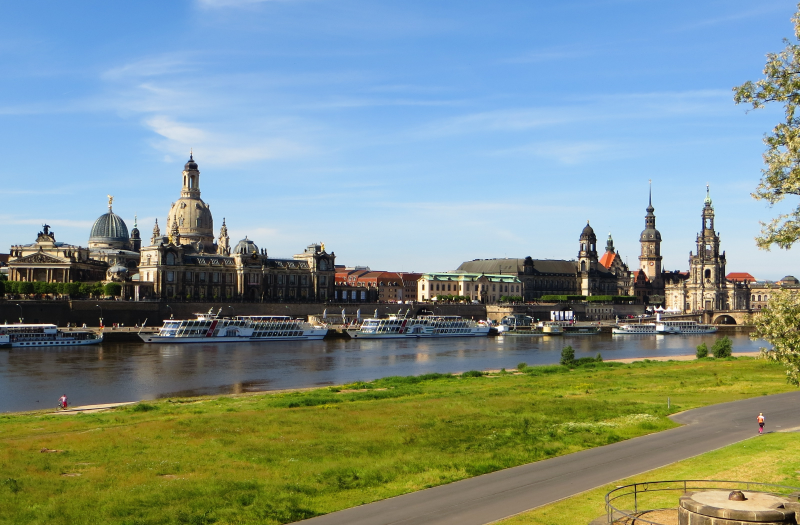Dresden - NbS for sustainable urban transition

The landscape plan, which is currently under development following the incorporation into the city of some surrounding areas, is intended to bring about a compact city, accommodating further development within the existing borders, and including a network of functional green spaces. The draft version, which underwent a public and stakeholder consultation process in 2015, provides detailed indications for future development and also seeks changes to existing planning documents (Dresden, 2017a), with a view to protecting and enhancing green networks and so ensure air and water quality, reduce the urban heat island effect and protect biodiversity.
The city is currently developing a vision for the city’s future, and is testing and implementing projects to achieve that vision (Dresden, 2017c). It participated in a competition organised by the German Federal Ministry of Education and Research (BMBF) inviting cities to develop their visions. The process is at present being developed through intensive co-creation among bottom-up initiatives; to this end, workshops for citizens are organised in individual neighbourhoods and at city level.
The case study chosen by the FP7 project ARTS, focusing on the process of transforming allotment gardens into community gardens, showcases some elements of transition in the city. Community gardens represent an example of social innovation, and support for them is part of a strategy to create momentum for a transition towards sustainable, low-carbon urban lifestyles. Food production in community gardens offers the opportunity to connect actors/initiatives from different thematic backgrounds (nature conservation, biodiversity, health, food consumption and community building).
NbS project 1: transforming former allotment gardens into community gardens
The ARTS project in Dresden provided a framework for actors from community garden initiatives (Stadtverband der Gartenfreunde, Gartennetzwerk Dresden) to intensify contact/cooperation and...
The focus on participation and on bottom-up initiatives like the citizens initiatives for community gardening implemented in the ARTS case study is currently bringing about a change of practice in local governance, where the new initiative ‘Zukunftsstadt’ (City of the Future) builds on the co-design of a shared vision for the city. Members of the public and bottom-up initiatives are involved in both planning and implementation (Dresden, 2017c).
In Dresden, as in many other places, access to financing for bottom-up transition initiatives is difficult for two reasons: the design of funding opportunities is obviously informed by current policy agendas, so does not necessarily suit the needs, organisational patterns, and objectives of...
Norbert Rost, Landeshauptstadt Dresden
